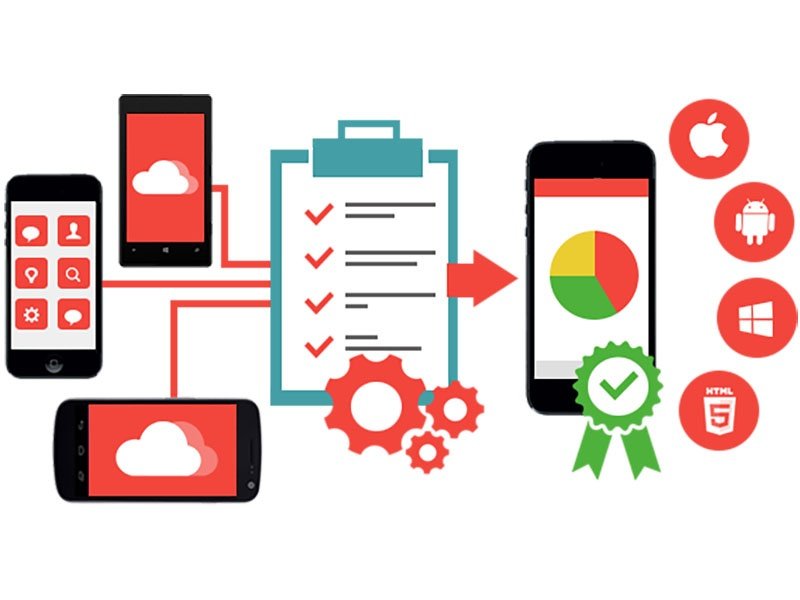The success or failure of a mobile app depends on its testing. It is as vital as developing an application. If you launch an app while rushing the testing stage, it can be a huge failure in the app market. The failure of an app can be related to any of the following reasons:
- If your app has any form of errors
- App isn’t user friendly
Therefore, if you want to improve the marketability and boost app downloads, app testing is most critical for your app.
Taking the shortcut method to test an app is not surprising as many developers tends to finish developing the app on time. This is where they fail to identify many loopholes in the app, which may completely ruin the application in future. It is important to understand that testing a mobile app is not child’s play. To achieve the desired result, the testing stage involves several rounds of iteration to test all the features and functionalities.
Here are 6 common mistakes that developers tend to do as they perform the critical process of mobile app testing. Try avoiding these mistakes to make the phase smoother and ensure highest standards of quality result.
DJ Recommended Reads: Getting Started with Android Testing
UI/UX given more emphasis than functionalities
App testers often tend to forget about the features provided by the applications to deliver the best user experience to end users. Design, Looks, and User Experience does matter, but what about the usability perspective? Why would users download your app if it does not fulfill it’s sole purpose or the features are not working properly? A good app is all about delivering what users get from it and not only what they see in it. Therefore, app testers should follow a more balanced approach when it comes to test UI/UX as well as the features or usability of the app.
Testing an app without an in-depth knowledge of it
This is one of the biggest mistakes that most app testers do. They have the responsibility of testing an app that they have never heard of. And they tend to quickly test some of its features, UI and UX and submit the report. This is not the ideal situation for mobile app testers. The tester should have in-depth knowledge of the app – its functional requirements, features, and business logic. This way a tester will cover all functionalities and user flows in the app, and make sure it performs optimally and as per core business requirements.
Trying to test everything
It is impossible to test a mobile app against every device, location, Operating System or network. However, it is vital to have objective visibility of what you are testing and how well it can target the customers who would use your app. Google Analytics and backend logs can help to create a clear picture of customer behavior.
Suppose if you are handling 50 test cases and you have to test on 10 different devices on 5 different network environments, there are innumerable executions you have to make. But that is impossible. However, what you can do is to study market demands and user behavior to identify what are your most important devices, test cases, and networks, and prioritize testing them.
DJ Recommended Reads: Getting Started with Android Testing
You are testing a mobile app like a web
The world of website development is slow and static, and the concept does not apply to the highly dynamic and evolving mobile world. In web development, testing on only a few browsers is enough. However, if you do so for mobile apps, you would cover roughly 15% of the market. Staggering, right? There is more. Mobile applications need to be updated every month. On the contrary, a web browser updates every year; so, you are fine web testing in the same environment. But if you do that in mobile, you would be testing for an old device after only a few months. Therefore, taking the web approach for mobile app testing is wrong.
Improper Crash Logs
Nothing annoys a user more than frequent app crashes, and this can be devastating for the success of your app. Crashes are normal until the time your application is completely free of bugs and errors. Therefore, it is vital to maintain proper logs for all the crashes taking place in the testing phase and prepare a report highlighting what crashes to resolve. This is also where in-depth knowledge of the app tester is important. Unless he knows what the crash is all about, he will be unable to prioritize it and send an accurate report to the developers.
Discrepancy in reporting
For successful app testing, finding bugs and maintaining crash logs is as important as sending accurate reports. Unfortunately, due to lack of knowledge, time constraints and other factors, app testers fail to send the reports correctly and commit mistakes. These discrepancies put the developers in a dilemma as to what areas to resolve and what needs to be given more priority. Due to mistakes in reporting and miscommunication, the bugs or errors in the app cannot be resolved correctly and the app hits the market with its flaws. This can be devastating for the app when users find errors or bugs in it.
DJ Recommended Reads: Getting Started with Android Testing
Conclusion
The objective of testing a mobile app is to deliver a quality product at the end of the day. Therefore, it is important for the testers to avoid common mistakes at every stage of testing and send appropriate & insightful reports that can help the developers to fix the issues and deliver a bug-free app

